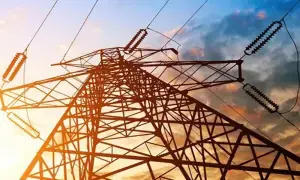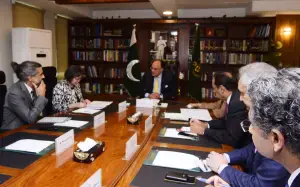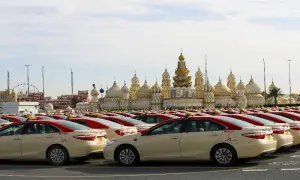Explained: Secretive mechanism behind Pakistan’s petrol prices
3 min readPakistan is scheduled to make an announcement related to the petroleum products prices in its fortnightly revision on Sunday۔ Although there are mixed reports related to the new rates, many wonder how they are decided and question how the entire process is kept under the wraps.
The rate of petrol is Rs267.34 after the government slashed it by Rs14 on December 15, giving relief to the people already living under breakneck inflation.
Fuel prices in the South Asian country have been fluctuating over the past many months. Records were smashed on September 15 when the caretaker government increased the prices of petrol and high-speed diesel by Rs26.02 and Rs17.34 per litre, respectively, breaching the Rs330 mark for the first time in the country’s history.
The government has attributed the fall in the prices to a decrease in international oil rates and the rupee’s appreciation against the dollar.
Estimates of Oil Marketing Companies show that the petrol and kerosene oil prices may be Re1 cheaper while the high-speed diesel and light diesel oil may be Rs2 per litre expensive next year. Estimates are based on zero adjustments in the exchange rate, current petroleum levy rates and general sale tax rates.
Pricing formula
Pakistan’s fuel rates are determined by a pricing formula approved by the government, according to an official.
“The policy makers [federal government] finalise the policy and after the approval of federal cabinet it is sent to the Oil and Gas Regulatory Authority for implementation,” Ogra spokesperson Imran Ghaznavi told Aaj News.
Ogra calculates the prices on the basis of policy and forwards it to the energy ministry for necessary action at their end, he added.
“The prices of petrol and diesel are determined under the provisions of Petroleum Products (Petroleum Levy) Ordinance, 1961, OGRA Ordinance, 2002 and ECC/ Cabinet approved formula/mechanism,” according to a brief on the prices shared by Ghaznavi.
The petrol and diesel pricing mechanism was approved by the cabinet in August 2020. Under this,
-
The base price is 15 days average Free On Board (FOB) prices of the Arab Gulf market published by Platts.
-
Supplier premium, import incidentals (LC/Bank charges and port charges etc) and custom duty of PSO are added to work out import price.
-
Distribution cost (inland freight equalization margin, OMC, and dealers margins) and prevailing taxes (GST and petroleum levy) are added in order to work out ex-depot sales prices.
“Ogra works out the prices on fortnightly basis and forwards recommendation for adjustment of prices to the Finance Division through the Petroleum Division. The Finance Division, pursuant to cabinet decision dated August 31, 2016, submits a price summary to the prime minister for approval. Subsequently, refineries and oil marketing companies adjust and announce the prices accordingly,” it said.
Why the process become secretive
In the past, Ogra used to issue a written summary to the Prime Minister’s Office two days before announcing the decision.
Although Ogra still produces the summary and publishes its computations, the process is no longer as open as in the past.
The Ogra summary is drafted after reviewing international oil rates. The finance ministry decides the amount of tax to be imposed. Successive governments have been imposing petroleum levy to meet the International Monetary Fund conditions.
Also, read this
Suggestions related to taxes come from the finance ministry and the Federal Board of Revenue. But the prime minister is the final authority to give final nod after consulting the finance secretary and the energy ministry’s director general.
This mechanism was open as media were informed about the summary and the government’s reply to it. But it has changed over the past many years. The summary is purportedly discussed at a last minute before the premier’s approval.
Pakistan State Oil does all the purchasing for international oil marketing companies. As per rules, companies are bound to have 15 days of stock.
For the latest news, follow us on Twitter @Aaj_Urdu. We are also on Facebook, Instagram and YouTube.


























Comments are closed on this story.